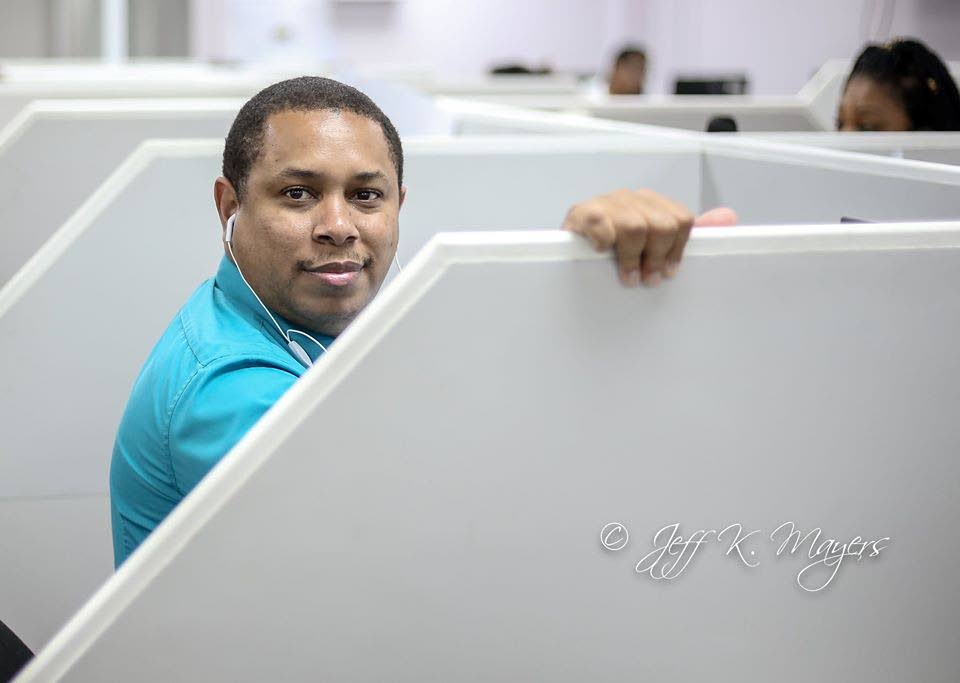Journalists, an essential service during pandemic

Every day, journalists put themselves forward to bring critical information to the public.
They spend hours questioning, researching, verifying, analysing and debunking information to allow the public to make informed choices.
In this pandemic, examples of those choices can range from where it’s appropriate to wear a mask and where someone should go to access social relief grants. Public officials provide data. Journalism provides clarity. Today, May 3, the globe observes World Press Freedom Day, with a theme of “journalism without fear and favour.”
It is a day of observance proclaimed by the United Nations General Assembly in 1993 and while every year the occasion shines a spotlight on press freedom violations, access to information and other issues which affects the public’s right to know, 2020 has added a pandemic to this list. Journalists across TT are faced with new challenges when it comes to access to information.
Newsday asked some of them to share their feelings about the importance of journalism in a pandemic.
Julien Neaves

This pandemic is one of the moments in global history where journalism is of paramount importance. People are scared, panicking and desperate for information. And getting accurate, balanced information could be literally a matter of life and death. Now is not the time for click-bait journalism or scaremongering but for true journalism with effective communication, contextualisation and analysis where necessary. While journalists may be an easy punching bag during this period, we must all rise to the occasion and be beacons of truth in a world assailed by fake news and half-truths. And even if no one thanks us, we will have the satisfaction of knowing that we provided an essential service in this most dire of situations.
Kejan Haynes

The last time the nation was so engrossed in daily news conferences was the floods in Greenvale. Disaster has a way of shooting journalism into the spotlight, shining light on “how the hot dog is made” so to speak. Admist the criticism thrown at journalists there’s a silver lining: the public has a better understanding of how much work it takes to get a story on air or on a page, and journalists have a better idea of how they can improve. With a disease that changes daily, asking the same question every day can yield a new answer every time. Every question asked and answered could be a life saved. It’s why the media is an essential service in this pandemic.
Asha Javeed

Serving the public’s interest is the purpose of our work as journalists. Sometimes, and especially, when the public isn’t even aware or cognisant of it. That includes asking a question which seems fairly obvious for some but needs to be spelt out for others. What we’re facing is covering a virus which has wrecked lives and livelihoods, has hurt and will continue to hurt economies in the coming years and in large measure has many unknown aspects. That unknown quality is what inspires fear which can be manipulated or exploited by people in power or just powerful people. And that’s where journalism comes in – to keep the public abreast of developments from Government policy to health data, to report accurately on what’s happening as people are depending on information to inform their movements and livelihood, as a defender of the public’s rights and to hold officials to account on their management of this pandemic on our behalf. As a gatekeeper, it is in times of crisis, where we need to remain vigilant and continually ask ourselves if our work passes the litmus test of, “does it serve the public’s interest?” The whole public. Not just a part of it.
Lasana Liburd

A president touts hydroxychloroquine as a potential cure for covid-19. Is he right? The normal man on the street can’t even pronounce the word, let alone hold court on its pros and cons. To be fair, neither can most journalists. But it is our job to get that information and share it quickly, clearly and accurately to the wider public. Hopefully that’s an example of how good and responsible journalism can save lives.
The higher the stakes, the more important the role of an independent, calm voice – which should be the job that the media plays. The fight against this pandemic is guided, at least in theory, by science. Journalists must stress test every policy and claim, as much as possible, in the interest of the public. It is a job that won’t always be easy or popular but it remains important, particularly in these times.”
Kandace Jackson

There is always a huge level of uncertainty among the population whenever there is a pandemic of any kind. Governments respond by engaging their propaganda machines to keep the population in check and minimise panic. However, it is easy for many things to slip under the radar. The government still needs to be held accountable. Journalism becomes extremely important here because it helps the public in seeking the truth which can be so easily disguised during a pandemic. It holds the government accountable to their actions and it helps the public in being informed.
Cindy Raghubar -Teekasingh

Dispelling fake news has become entangled into our daily role for some time now; but as we battle a deadly invisible enemy every fake article we don’t clarify diminishes the national effort to beat this disease. Being able to also tell the stories of those suffering more than others during this turbulent time, makes the task even more crucial. It’s true that not everyone is having the same experience, and we have to show those who may be a little more comfortable at home that there are far too many people suffering without employment, without a meal, without water. Journalism gives that needed push to those in authority to do more, how and where to direct their efforts. Journalism makes that possible. Without it, how will we know exactly what we’ve been able to overcome when this is all finally over?
Mariah Ramharack
Journalists are critical in preserving democracy. When times are bad, we return to our roots and act as disseminators not just of crucial information but instructions on what to do, who to call and where to go. During this covid19 pandemic, it’s the role of a journalist to ensure the government is held accountable to citizens. Apart from asking pertinent questions, we are tasked with keeping the public updated by breaking down information in the most consumable manner.

Comments
"Journalists, an essential service during pandemic"